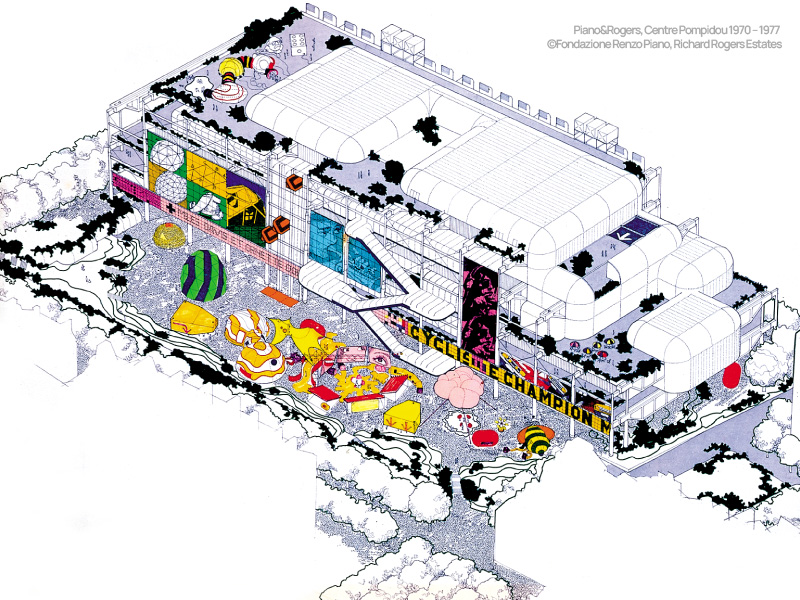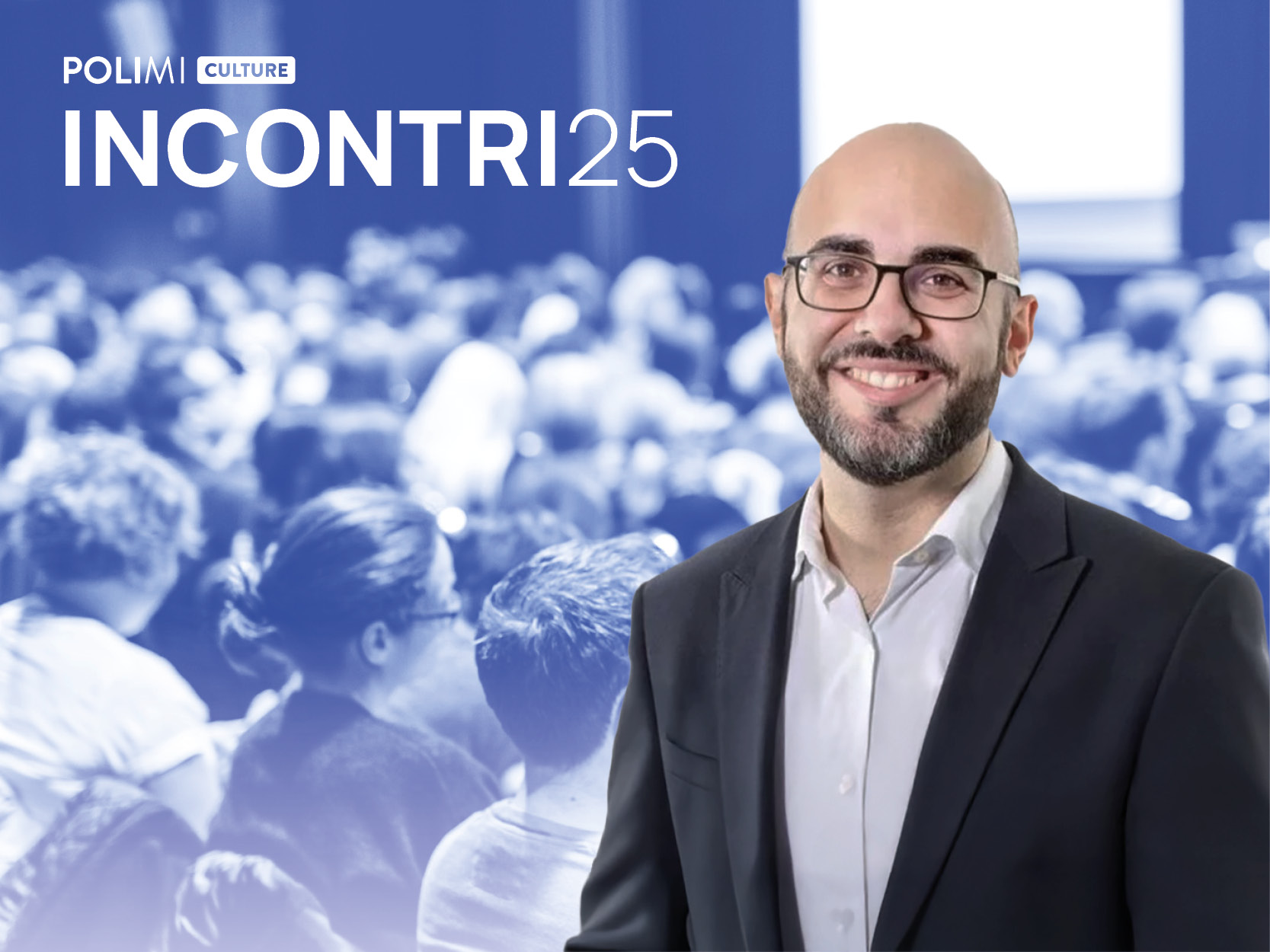june
6may - 13junAll DayMANTOVARCHITETTURA 2025

Event Details
From May 6 to June
more
Event Details
From May 6 to June 13, 2025, the 12th edition of MANTOVARCHITETTURA will take place, whose theme, “Architecture and Conflict,” will address the problem of armed conflict, forced migration, and climate change in contexts such as-among others-Gaza, Ukraine, Syria, Myanmar, Sudan, and Yemen. Within this framework, MANTOVARCHITETTURA 2025 investigates the connection between architecture and conflict by analyzing the complexity of this binomial according to different cultural and disciplinary perspectives, and through the dialogue between multiple historical-critical narratives, in a contemporary perspective.
MANTOVARCHITETTURA invites students, professionals and citizens to an open discussion on the implications of architecture in these scenarios, stimulating a deep and multidisciplinary dialogue. The event investigates four different perspectives of conflict: architecture and armed conflict, conflicting memories, conflicts of interest and inner conflict. These paths offer alternative and complementary viewpoints to analyze architecture’s contribution to understanding and managing conflict.
MANTOVARCHITETTURA is an event launched in 2014 within the UNESCO Chair in Architectural Preservation and Planning in Heritage Cities, favored by the international dimension in which Mantova and the Politecnico di Milano are placed. The main protagonists have always been the students, who have the opportunity to listen to and meet architects from all over the world who develop the new architecture starting from the knowledge of the ancient roots of this art, thus making the confrontation between masters and students lively, in a perspective founded on the value of history as a ground on which to cultivate the design of living spaces.
Discover the full program on the website mantovarchitettura.polimi.it
Time
May 6 (Tuesday) - June 13 (Friday)
Location
Mantova
Vari luoghi
Organizer
Politecnico di Milano, Polo territoriale di Mantova
6jun18:30L’archivio del futuro. Immaginari e utopie tra architettura e società

Event Details
A talk between Roberto Dulio
more
Event Details
A talk between Roberto Dulio and the artist Rancore
The future, before becoming such, is preconceived by thoughts, utopias, designs. Every design, especially one of architecture, when realized, leads to the materialization of the future. Then, that same design, is kept in an archive, along with unrealised projects that would have led to other possible futures and that can prompt, in turn, the invention of further projects for the future. This process generates a seamless virtuous relationship. This phenomenon occurs for architecture, science, and technology, which invest and mutate society. Artistic images, which in turn encourage and often anticipate research, also fit into this virtuous leap towards the future.
The Politecnico di Milano has therefore decided to consider the Centre Pompidou (1971-77), by Renzo Piano and Richard Rogers, one of the most visionary designs, now part of its archival heritage: this project will spark a dialogue on this phenomenon with rapper Rancore (Tarek Iurcich), an artist who increasingly bases his artistic imagery in a Cyberpunk dimension – his latest album is titled Xenoverso (2022) – , in precarious balance between memory and future.
The talk between Roberto Dulio, Rector’s Delegate for the Archive, Library, and Museum System, and the artist Rancore, will take place on June 6, at 6:30 p.m., at the Spazio Renzo Piano at Campus Leonardo, Politecnico di Milano.
The event will be held in Italian. It is open to all and free, subject to availability. No registration is required.
In case of rain, the event will take place at Patio di Architettura, Politecnico di Milano, Campus Leonardo, via Ampère 2 – Milano.
The initiative is part of the Archivissima calendar, the Archives Festival, taking place from June 5 to 8, 2025. Visit the dedicated page for our event.
Time
(Friday) 18:30
Location
Politecnico di Milano, Campus Leonardo - Spazio Renzo Piano
Via Bonardi 9, Milano
Organizer
Politecnico di Milano
10jun10:30- 12:00Multiple Pathways for Research Ideation & Execution

Event Details
How do you come up
more
Event Details
How do you come up with a research idea? How can you make your research more impactful? Should your idea be motivated by a problem or a unique dataset? This session will discuss different pathways to impactful and publishable research with specific examples. The session will also briefly cover some pointers on managing the review process.
Denish Shah is the Barbara and Elmer Sunday Professor of Marketing, Founding Director of the Social Media Intelligence Lab, and Executive Director of the Marketing RoundTable at Georgia State University. His research focuses on issues that lie at the intersection of marketing strategy, new technologies, and/or social impact of marketing. His research has been published in top journals such as the Journal of Marketing Research, Harvard Business Review, Marketing Science, Journal of Marketing, Sloan Management Review and several other outlets. He is the co-editor of the Handbook of Research on Customer Equity in Marketing. Dr. Shah’s research has been a finalist or winner of two early career awards recognizing excellence in research, nine best paper awards (including the prestigious MSI-Paul Root Award, ISMS Practice Prize, and the Robert D. Buzzell Award) and three dissertation-based awards. Dr. Shah has a PhD in Marketing from the University of Connecticut, USA.
Please click here to register.
Time
(Tuesday) 10:30 - 12:00
Location
Politecnico di Milano, Campus Bovisa - Edificio BL26, aula 1.25
Via R. Lambruschini 4/B, Milano
Organizer
Department of Management, Economics and Industrial Engineering
11jun12:15- 13:45Sustainability and Human-centricity in Logistics and Supply Chain Management

Event Details
Sustainability and human-centricity have become
more
Event Details
Sustainability and human-centricity have become fundamental principles in contemporary logistics and supply chain management. This presentation provides insights into the integration of human-centered approaches into sustainable logistics and supply chain management strategies and highlights their impact on long-term resilience and adaptability. The presentation also explores how digital transformation and new technologies can support inclusive and environmentally responsible logistics systems. In this context, it examines real-world practices and frameworks and offers insights on how organizations can align their performance objectives with social and environmental values.
Suzan Oğuz received her Ph.D. from the Department of International Trade and Logistics at Akdeniz University (Antalya, Türkiye) in 2023. She worked as a Research Assistant at Çağ University (Mersin, Türkiye) between 2016 and 2023, and now holds the position of Assistant Professor at the same institution. She is currently conducting a postdoctoral research project at the Department of Management, Economics and Industrial Engineering (DIG) at Politecnico di Milano, funded by the Scientific and Technological Research Council of Türkiye (TÜBİTAK). Her research interests focus on sustainable logistics, supply chain management, and the integration of emerging technologies into logistics systems.
Time
(Wednesday) 12:15 - 13:45
Location
Politecnico di Milano, Campus Bovisa - Edificio BL26/B, aula 0.19
Via R. Lambruschini 4/B, Milano
Organizer
Department of Management, Economics and Industrial Engineering
17jun12:15- 13:15Common Trends and Long-Run Identification in Nonlinear Structural VARs

Event Details
While it is widely recognised
more
Event Details
While it is widely recognised that linear (structural) VARs may fail to capture important aspects of economic time series, the use of nonlinear SVARs has to date been almost entirely confined to the modelling of stationary time series, because of a lack of understanding as to how common stochastic trends may be accommodated within nonlinear models. This has unfortunately circumscribed the range of series to which such models can be applied — and/or required that these series be first transformed to stationarity, a potential source of misspecification — and prevented the use of long-run identifying restrictions in these models. To address these problems, we develop a flexible class of additively time-separable nonlinear SVARs, which subsume models with threshold-type endogenous regime switching, both of the piecewise linear and smooth transition varieties. We extend the Granger–Johansen representation theorem to this class of models, obtaining conditions that specialise exactly to the usual ones when the model is linear. We further show that, as a corollary, these models are capable of supporting the same kinds of long-run identifying restrictions as are available in linearly cointegrated SVARs.
Sophocles Mavroeidis is a Professor of Macroeconometrics at the University of Oxford and a Fellow in Macroeconomics at University College, Oxford. His research focuses on econometric methods for macroeconomic models, with major contributions in addressing weak identification in structural models and developing techniques to account for nonlinearities induced by occasionally binding constraints. His work has advanced robust inference in macroeconomic models, particularly in settings where standard estimation methods fail due to weak instruments or nonlinearity. He has published in leading journals, including Econometrica, the American Economic Review, and the Journal of Econometrics, and has received funding from the NSF, Leverhulme, ERC, and UKRI. He serves as an associate editor for multiple journals.
Please click here to register.
Time
(Tuesday) 12:15 - 13:15
Location
Politecnico di Milano, Campus Bovisa, Aula BL27.1.4
Via Lambruschini, 4 - 20156 - Milano (MI)
Organizer
Department of Management, Economics and Industrial Engineering
17jun18:00INCONTRI | Carlo Rinaldi presents his book "Intelligenza sensibile"

Event Details
For the INCONTRI review Carlo
more
Event Details
For the INCONTRI review Carlo Rinaldi presents his book Intelligenza Sensibile (Egea ed., 2025), dedicated to “relational” listening in organizational systems and in the interaction with artificial, natural and human intelligences, in dialogue with Fabio Fossa, researcher at Politecnico di Milano and member of META, Social sciences and humanities for science and technology.
A group that produces and disseminates knowledge about technoscience, and provides expertise on the philosophical, epistemological, ethical and societal issues that emerge from the processes of scientific research, technological development, design, and innovation.
The event will be held in italian.
.
Time
(Tuesday) 18:00
Location
Politecnico di Milano, Aula De Donato
Piazza Leonardo da Vinci, 32
Organizer
Politecnico di Milano

Event Details
The need for human in
more
Event Details
The need for human in the loop automation is particularly relevant for safety critical industry where industrial accidents related to technological malfunctioning have been diminishing, leaving the human error responsible for up to 80% of the accidents. However, even if one of the main aims of introducing automation is often to improve safety by reducing or eliminating human errors, it is often argued that this may simply induce new types of errors. To take full advantage of human machine collaboration, companies must understand how humans can most effectively augment machines, how machines can enhance what humans do best, and how to redesign business processes to support the partnership.
In the present talk, some areas of application and the key challenges and opportunities they raise in terms of function allocation, dependability and overall system performance will be presented. In this sense, a collaborative intelligent creative gesture is an innovation that required a combined effort from an intelligent, robotic or autonomous agent and a human.
Maria Chiara Leva is the Lead of the Human factors in Safety and Sustainability (HFISS) research group in Technological University Dublin and a Senior Lecturer in the School of Environmental Health for the same institution. She is a visiting research Fellow in the Centre for Innovative Human systems in Trinity College Dublin. She is the co-founder of Tosca Solutions (www.toscasolutions.com) a Spin out campus company based in NDRC and Trinity College Dublin to offer support for implementing risk management tools customised specifically to the needs of highly regulated environments. Her area of Expertise is Human factors and Safety Management Systems. Chiara holds a PhD in Human factors conferred by the Polytechnic of Milano Department of Industrial Engineering. She is the former chair of The Irish Ergonomics Society and current co-chair of the technical committee for Human factors in the European Safety and Reliability Association.
REGISTER
Time
(Monday) 12:15 - 13:45
Location
Politecnico di Milano, Campus Bovisa - Edificio BL26/B, aula 0.19
Via R. Lambruschini 4/B, Milano
Organizer
Department of Management, Economics and Industrial Engineering
july
No Events
august
No Events
september
No Events